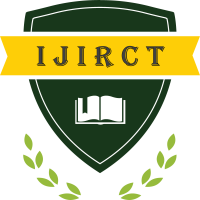Ensuring Data Security: Key Technologies for Protecting Confidentiality, Integrity, and Availability
Author(s): Varun Garg
Publication #: 2412068
Date of Publication: 05.12.2021
Country: USA
Pages: 1-5
Published In: Volume 7 Issue 6 December-2021
DOI: https://doi.org/10.5281/zenodo.14507566
Abstract
Strong security solutions are in more demand than ever since data drives front stage in modern corporate operations. Data breaches, ransomware attacks, insider threats, and sensitive data exposed to use by these events cause significant financial losses, damage to reputation, and legal actions. Fundamentally governing data security are confidentiality, integrity, and availability (CIA). Confidentiality protects private data from illegal access; integrity guarantees that data is accurate and unaffected; and availability guarantees that systems and data are reachable as needed.
It is in this perspective that this paper discussed these concepts of fast-evolving technological environments, with eyes on key instruments that firms use in safeguarding data. For their ability to address the particular challenges of distributed systems, cloud settings, and multi-regional data usage, there is a need to analyze encryption, IAM, disaster recovery solutions, and proactive monitoring tools. The paper also considers the lately emerging technologies: Artificial Intelligence for predictive threat detection, zero-trust systems for total access control, and blockchain for integrity of data not subject to change. This paper sets out to put forward practical suggestions for building resilient, scalable, and safe data systems which would be resistant to the pressure coming from cyber-attacks in today's world.
Keywords: Data Security, Confidentiality, Integrity, Availability, Encryption, Identity and Access Management (IAM), Data Breach Prevention, Disaster Recovery, Proactive Monitoring, Role-Based Access Control (RBAC), Attribute-Based Access Control (ABAC), Data Masking, Hashing, Digital Signatures, Cloud Security, Blockchain for Integrity, Artificial Intelligence in Threat Detection, Zero-Trust Architecture, Post-Quantum Cryptography, Regulatory Compliance, GDPR, HIPAA, Data Integrity Verification, Distributed Systems, Cybersecurity Frameworks
Download/View Count: 287
Share this Article
